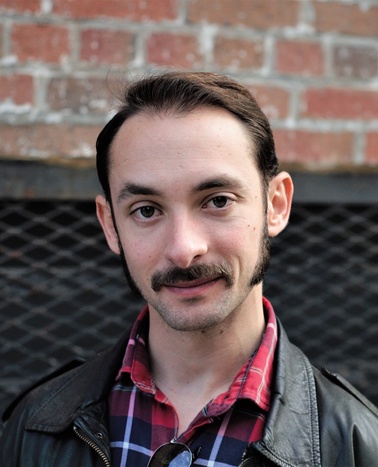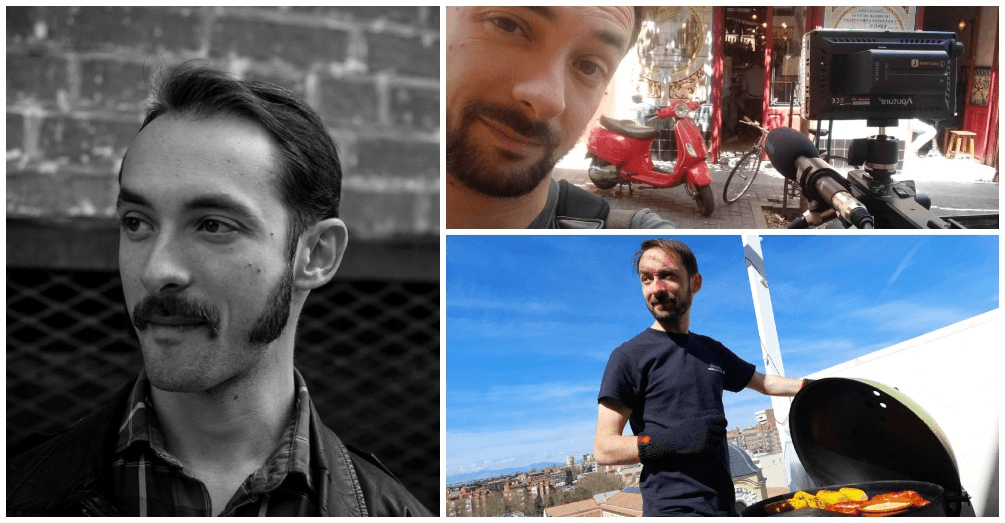
Javier Sauras
I was born in Madrid in the 1980s and lived in the city until the early 2000s. I studied journalism at the Complutense University of Madrid and London City University and completed my PhD in Communications at Columbia University. I have lived and worked in many places around the world, among many different people. For the last 15 years, my journalism career has taken me from East Asia to sub-Saharan Africa, across Europe and all over the Americas. I came back to Madrid for a visit in early March 2020, but five days after my arrival the World Health Organization declared COVID-19 a global pandemic. Many countries closed their borders, and what was conceived as a week-long trip became my unofficial return. I have rediscovered Madrid now, and I'm not planning to leave!
"The study of humanities is as broad as the human experience. It's an all-encompassing field that deals, one way or another, with all aspects of society. I find it quite difficult not to be interested in studying it."
A journey towards finding out who we really are
Javier Sauras is an award-winning journalist whose career has taken him all over the world. Returning to his home city of Madrid for what was scheduled to be just a short visit in 2020 but then being unable to leave because of the COVID-19 pandemic, Javier found himself rediscovering the place where he grew up. Now, he is settled and has no plans to leave.
Given Javier's extensive experience of travel and other cultures, it’s perhaps no surprise that he now teaches the humanities. An adjunct professor of the Bachelor in Humanities, he not only regards the study of the subject to be “as broad as the human experience,” but he also views his teaching as an extension of his own lifelong learning. “I find it quite difficult not to be interested in studying it,” he tells us. “Teaching, in my case, is yet another way to study society and the human experience.”
Such a passion for the humanities bodes well for students of the program, who can, according to Javier, expect to build, hone and expand their own intellectual toolkits without losing sight of the humane aspect of the discipline. The classic idea of the humanities, he says, refers to what is human as well as what is humane. Both are clearly important to Javier.

That, he maintains, may be the subject’s most meaningful role in our collective future.
As for the influences on his thinking, he cites American author Ursula K. Le Guin’s assertion that people read books to find out who they are. Le Guin, he tells us, believed that what other people, real or imaginary, think and do and feel is an essential guide to our understanding of what we are, and of what we may become. For his part, Javier agrees with her, but he doesn’t limit that understanding to books and doesn’t believe Le Guin would have either. For that reason, he’s always interested in what other people—even imaginary people such as the characters that populate our fiction—do, think and feel. For Javier, it’s crucial to explore the causes and consequences of actions, thoughts and feelings, not only to realize who we are but to “allow us to enact and support positive change with the best information available.”
Quite the polymath, Javier says he reads, watches, listens to and plays with almost anything he stumbles upon. If he’s ever experienced the taste of boredom, he concludes, he can’t remember it.
Check out in detail Javier Sauras's academic and corporate experience
Check out in detail Javier Sauras's academic and corporate experience

WANT TO KNOW MORE ABOUT THE BACHELOR IN HUMANITIES?
WANT TO KNOW MORE ABOUT THE BACHELOR IN HUMANITIES?